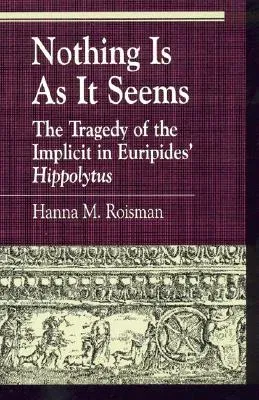Hanna M Roisman
(Author)Nothing Is as It Seems: The Tragedy of the Implicit in Euripides' HippolytusHardcover, 3 December 1998

Qty
1
Turbo
Ships in 2 - 3 days
In Stock
Free Delivery
Cash on Delivery
15 Days
Free Returns
Secure Checkout

Part of Series
Greek Studies: Interdisciplinary Approaches
Part of Series
Greek Studies: Interdisciplinary Approaches (Hardcover)
Print Length
232 pages
Language
English
Publisher
Rowman & Littlefield Publishers
Date Published
3 Dec 1998
ISBN-10
084769092X
ISBN-13
9780847690923
Description
Product Details
Author:
Book Format:
Hardcover
Country of Origin:
US
Date Published:
3 December 1998
Dimensions:
23.37 x
15.04 x
1.85 cm
ISBN-10:
084769092X
ISBN-13:
9780847690923
Language:
English
Location:
Lanham, MD
Pages:
232
Publisher:
Series:
Weight:
467.2 gm